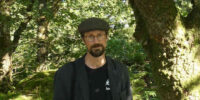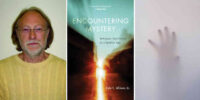Ours is a scientific age. Many people feel that science has proved God to be just a fairy story: it would be nice if it was true, but it’s not.
But jounalist Ross Douthat suggests that maybe this view is a prejudice against the evidence.
Perhaps, he says, “the progress of science and the experience of modernity have strengthened the reasons to entertain the idea of God”. Let’s see why.
Suppose we lived in Medieval times
Ross suggests that if we lived in the pre-scientific Medieval period, belief in God would make sense for three reasons.
- The orderly, awesome universe looks like something that was created with intent and love.
- Human beings, as conscious, rational beings, seem like we are fashioned in the image of the creator.
- There seems to be a supernatural world as well as a material one, and humans seem to share in both.
Reasoning in the light of science
These views seem almost quaint in our scientific world, but they made sense back then. And, Ross suggests, they still appear to explain things which science cannot.
1. The universe
Cosmologists wonder at the “strange fittedness of our universe to human life”. The only explanation on offer is the multiverse – the hypothesis that our universe isn’t alone, but in fact there are an almost infinite number of other universes, each with different physical laws and different life spans. Ours is one of the few that support life. And so its fittedness for life isn’t a wild coincidence, but entirely predictable.
Trouble is, the other universes in the multiverse cannot be observed and we have no way to test if they actually exist. Many scientists consider the hypotheis unscientific. So, he argues, belief in the multiverse requires a leap of faith. Postulating almost an infinite number of alternative universes seems to be a far wilder idea than that God created.
The mathematical beauty and consistency of the univeral physical laws, which most physicists recognise, adds weight to the idea of some form of design.
It has to be said that there are cosmologists who believe that the idea of the multiverse is based on some established physics, and isn’t so much a leap of faith. Nevertheless, it still seems like God’s creation is a simpler idea.
2. Human consciousness
The growth in our understanding of neuroscience has only further highlighted the so-called hard problem of consciousness: “the difficulty of figuring out how physical processes alone could create the lived reality of conscious life, from the simple experience of color to the complexities of reasoned thought.”
Scientific explanations of how physical processes produced human consciousness are so lacking that some scientists and philosophers argue that consciousness and our experience of self are illusions. But, as he wryly remarks: “the self …. doesn’t actually exist, even though that same illusory self has somehow figured out the true nature of reality.”
So again, Douthat argues, believing that God’s “mind precedes matter” makes more sense of who we are than denying our conscious humanity.
3. Religious experience
Many secular thinkers predicted a few decades ago that religious belief would decline in our age of reason. But it hasn’t happened. Of course less people now go to church, and less people believe in the omnipotent, monotheistic God
But, Douthat reminds us, people still have religious experiences, they are just less tied to conventional Christian belief. He gives links to accounts of these experiences, and mentions several examples:
- Near death experiences;
- “wild divine encounters”, mystical experiences or other mysterious happenings that lead people to believe in God;
- psychic experiences of premonition, ghosts and other phenomena;
- occult events such as hauntings, demonic visitations (and the increasing demand for Catholic exorcisms) and experiences of faeries.
Of course it’s easy to dismiss all these experiences as subjective, but explaining how they occur is more difficult. Evolutionary scientists may explain religious belief as serving some evolutionary purpose. But “most of our evolved impulses and appetites correspond directly to something in reality itself”, which makes believing that religion is the exception another leap of faith.
So, he argues, our world “presents considerable evidence of an originating intelligence presiding over a law-bound world well made for our minds to understand”.
The limits of these arguments
Ross recognises that these apparent facts don’t resolve all the problems of religious belief – e.g. the problem of evil, deciding which religion (if any) is true, parts of the Bible which seem unscientific, and the harm caused by religious belief.
But, he says, someone who is questioning the materialist explanation of the universe doesn’t have to feel they are being unscientific. They can quite reasonably “recognize instead that reality is probably not as materialism describes it”.
It is quite reasonable to look more deeply at these questions.
Photo by Andrea Piacquadio:





I had a near death experience, in it was only void, a total lack of awareness of anything.
My life in memory seems to be a sort of movie, a continuous sequence of sensory perceptions and thoughts. My near death experience is a stark gap in that movie for me, a blank period of self nothingness.
Therefore, by the line of thinking in the OP, death is a void.
Hi, interested in your experience and your conclusion.
Personally, I don’t think that NDEs show that there’s life after death, so we may agree there. But I do think the evidence suggests that materialism is an inadequate explanation.
But I question your argument here. Some people dream, some don’t, or at least don’t remember. But that hardly means that sleep is a void, surely? Same with NDEs. What do you think?